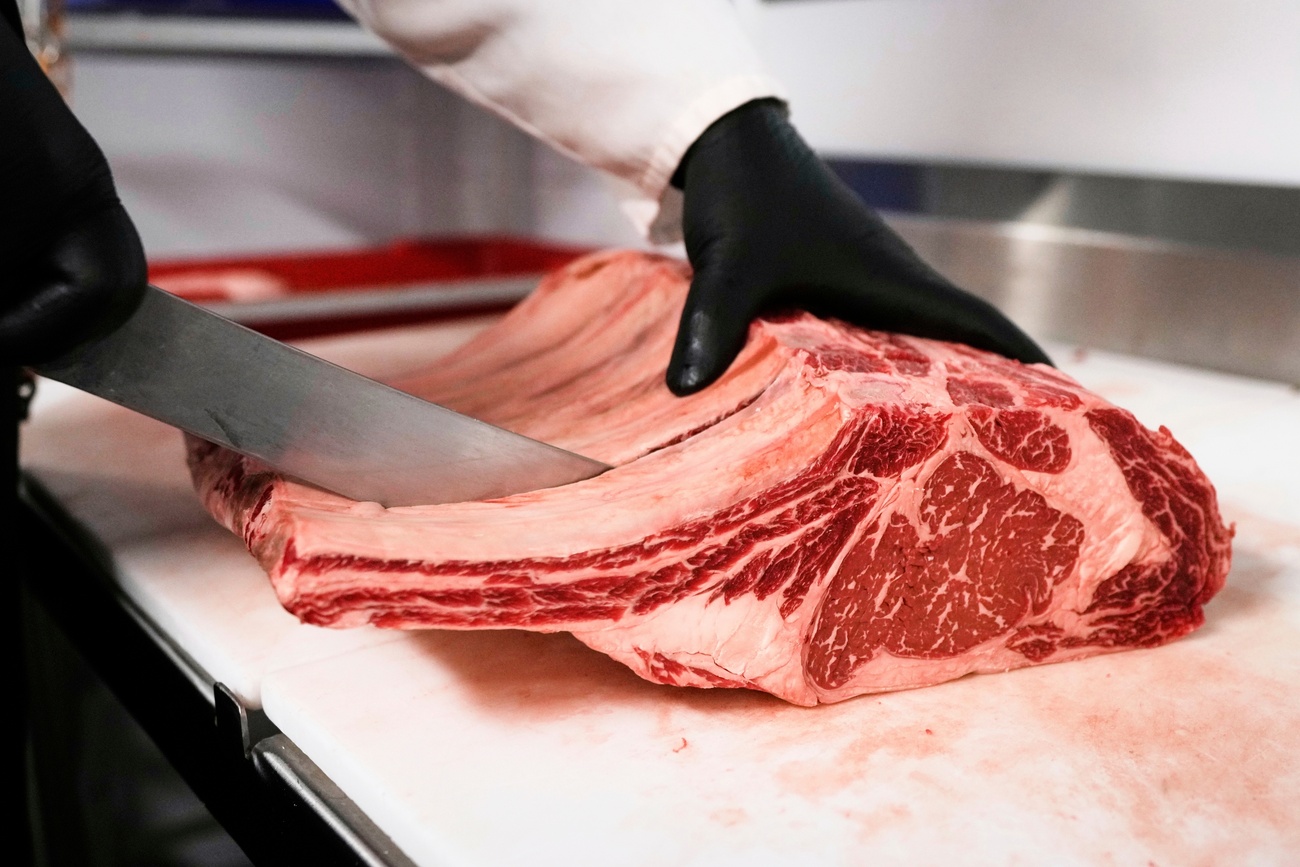
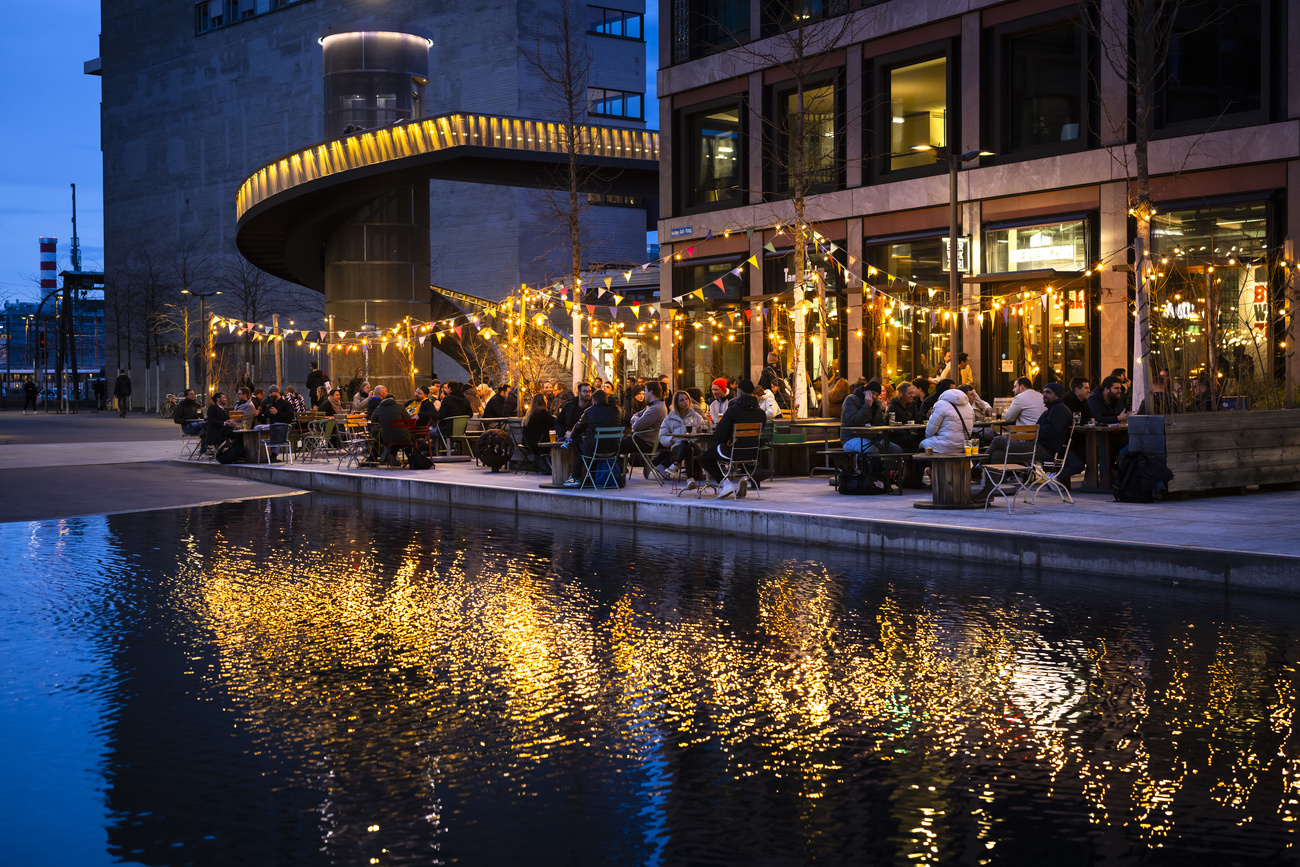
Switzerland Today
Dear Swiss Abroad,
Pensions, pensions, pensions… as you can imagine they’re the talk of Switzerland with just 11 days to go before two nationwide votes on March 3: on a 13th pension payment initiative and on a separate initiative to raise the retirement age to 66.
A new poll shows that backing to boost pension payments is losing ground but is still convincing many. But the idea to gradually raise the retirement age and then automatically index it to changes in life expectancy looks set to fail. Among the many articles being published on these topics, we look at the pensions of retired government ministers.
Here’s more on that and other news and stories from Switzerland on Wednesday.
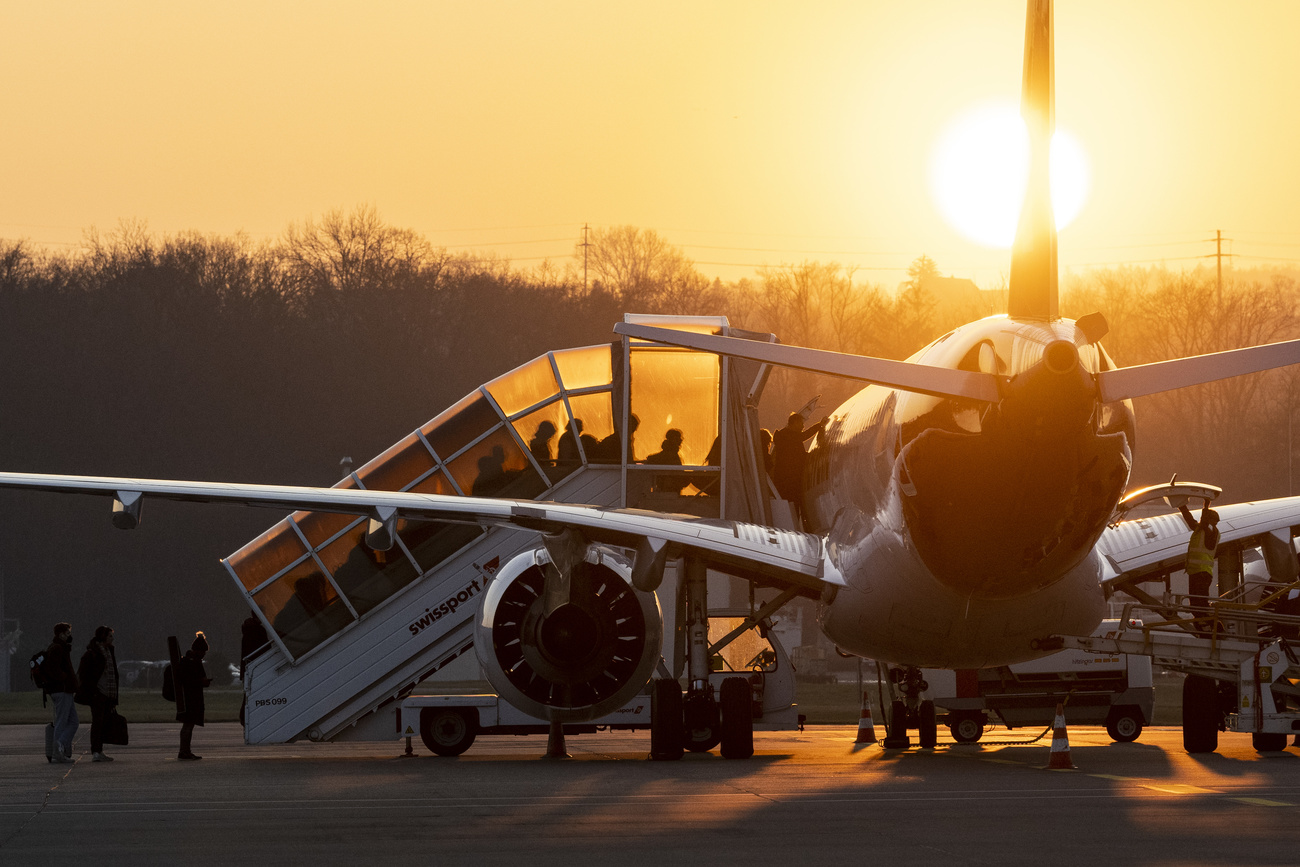
In the news: Swiss mountain huts, Hamas ban, aviation emissions, Nestlé Waters and watch exports.
Last year was a busy time for mountain huts. The Swiss Alpine Club had its best ever summer seasonExternal link: its 147 huts recorded a total of 310,735 overnight stays last summer.
The Swiss aviation sector should be able to meet the country’s net-zero CO2 emissions target by 2050, the government said today. But it must invest massively in sustainable aviation fuels, according to a new report.
An NGO has filed a complaint in France against Nestlé Waters, the bottled water division of the Swiss food giant, accusing the company of illegally processing its bottled water products and selling it without informing consumers.
Swiss watch exports rose modestly in January as growth slowed and weak demand for luxury and mid-priced watches dragged on the sector.
The Swiss government has proposed a five-year ban for the Islamist Palestinian organisation Hamas and affiliated groups after terrorist attacks on Israel. The government has submitted a draft bill to this effect for consultation.
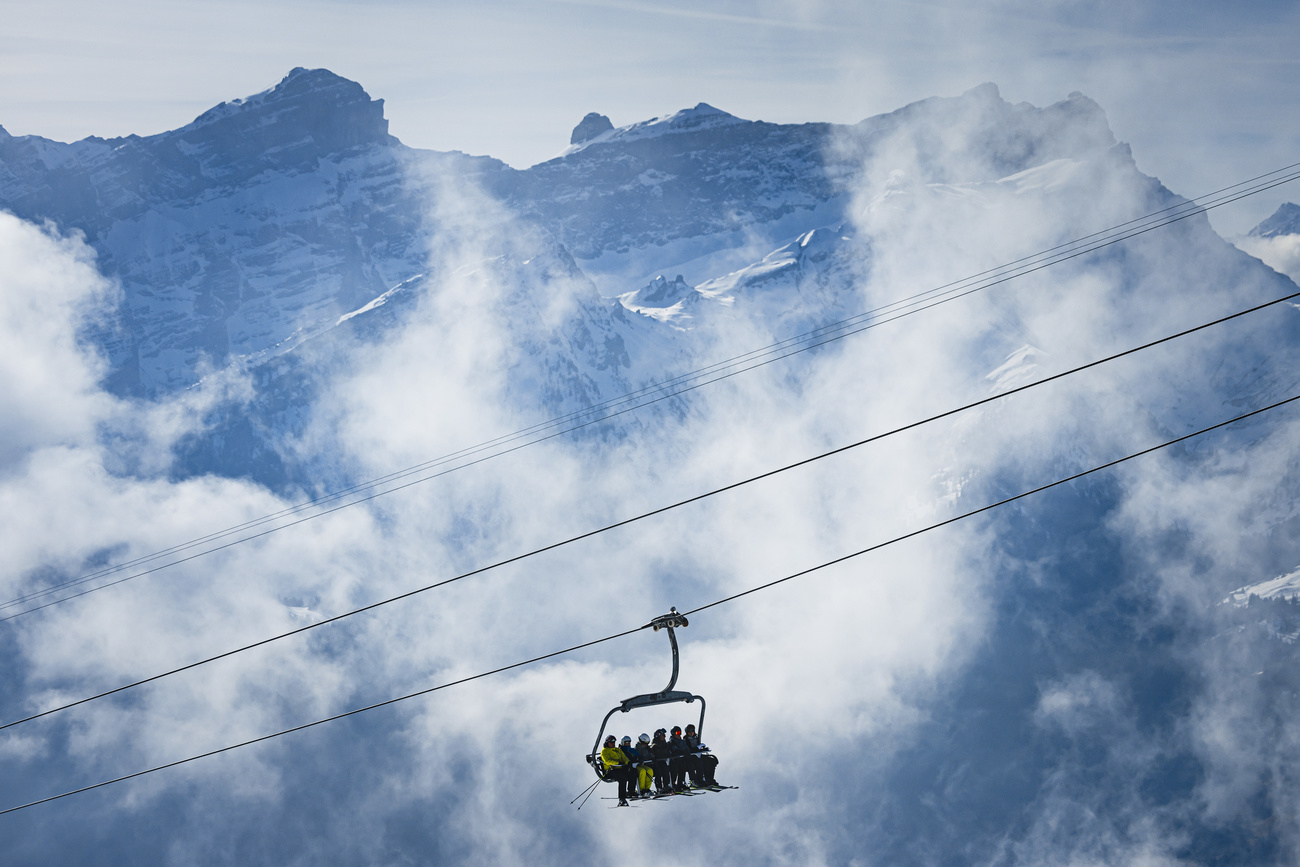
Are Swiss ski prices spiralling out of control?
The ever-higher prices charged at Swiss ski resorts for lift passes, equipment, food and accommodation are putting off many Swiss, a survey suggests. In an online poll published today by the 24heures newspaper, 48% of the 1,000 people questioned said the high prices were preventing them from going skiing.
Around 27% said they go skiing less often than they would like as it has become too expensive.
The cost of skiing has been rising sharply in Switzerland for the past two years, according to a study by Banque Cler and BAK Economics. This year a ski holiday between February 10 and 17 cost almost a quarter moreExternal link on average than for the same period in 2022.
Only 13% of participants in the 24heures survey said the high prices were not a barrier to going skiing, while 12% said they do not ski at all.
Véronique Kanel, spokesperson for Switzerland Tourism, told 24heures that she was not surprised by the poll. “Skiing has always been a more expensive sport than other winter leisure activities and it is normal that it is perceived as such in a spontaneous survey,” she said.
The tourism specialist stressed that there are “many advantageous offers for families or young people, such as ski passes combined with public transport or free ski days for young people”.
She also highlighted the big price differences between different ski areas in Switzerland, with some resorts also operating dynamic pricing.
Despite the results of the poll, Switzerland Tourism says the most recent statistics from the Swiss ski lift organisations, published at the beginning of February, tell another story.
Compared to winter 2022-23, there has been an overall increase of 20% in first passages – i.e. each individual entry to a ski area. “In January alone, the increase was 14%.” And looking at the current season compared to the average of the five previous winters, attendance is up by 12%.
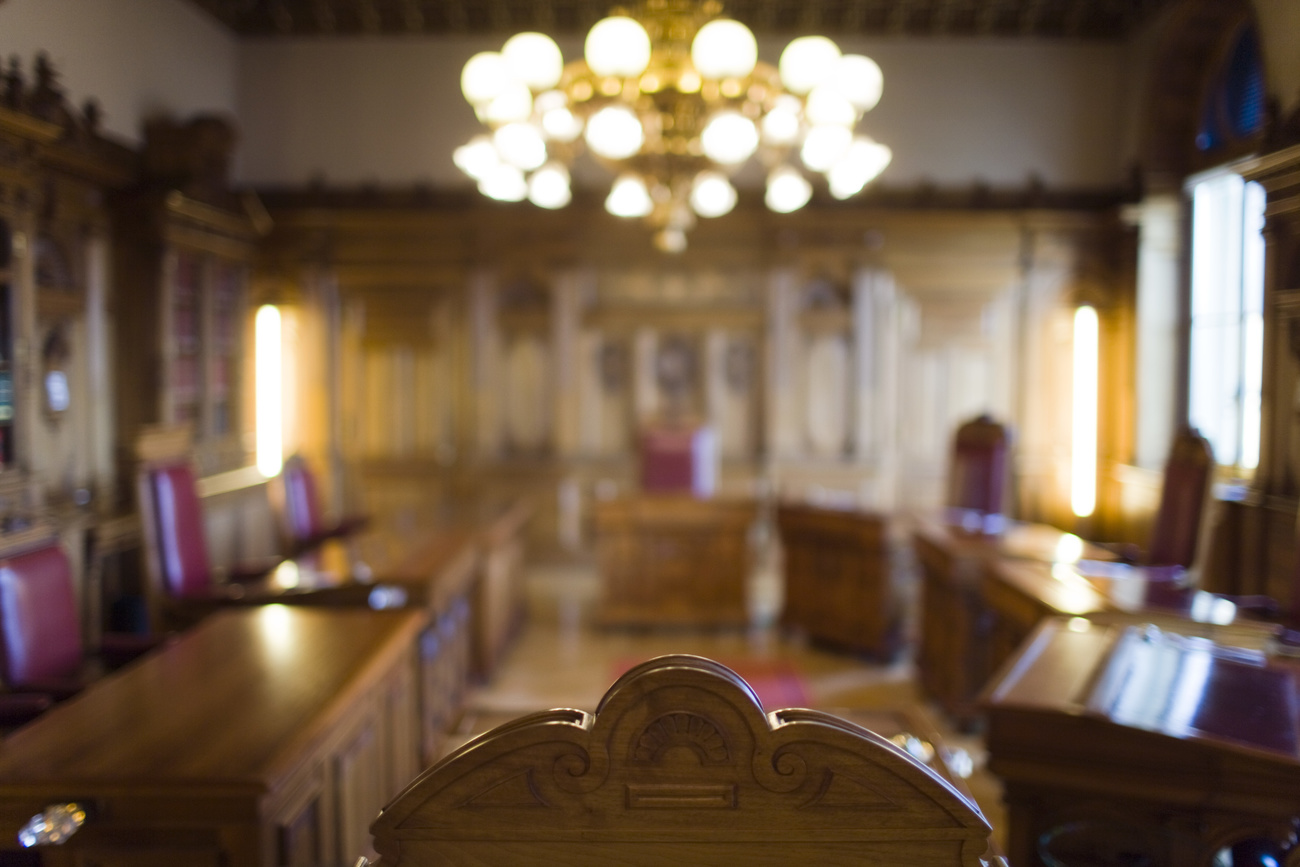
Government ministers’ pensions keep on rising
Former federal councillors Joseph Deiss, Pascal Couchepin, Doris Leuthard, Adolf Ogi and Johann Schneider-Ammann have urged the Swiss public to reject the upcoming vote initiative for a 13th monthly pension payment.
But the former ministers, who have all retired, do not face the same reality as Swiss pensioners. Their pensions have risen by 10% over the past fifteen years, while those of the average Swiss citizen have declined, according to figures presented by 24heures.
In addition to the first pillar of the old-age and survivors’ insurance (OASI) pension, a former government minister is entitled to receive “50% of the salary of a federal councillor in office” until they die.
In 2024, retired ministers will receive CHF236,480 (second pillar), according to figures provided by the Federal Chancellery, i.e. CHF2,341 more than in 2023. This rise is similar to the maximum monthly OASI pension (CHF2,450).
To be eligible for a full lifetime pension, you must have served at least four years in government.
The salaries of Swiss ministers have been rising steadily, apart from a slight dip between 2012 and 2017. Recently, they also benefitted from a cost-of-living indexation of 2.5% in 2023 and 1% in 2024.
This represents a salary increase of CHF16,104 over two years for federal councillors, who will receive CHF472,960 in 2024. Consequently, the pensions of former ministers will rise by CHF8,052 over the same period.
Ordinary Swiss pensioners are less fortunate. Last December, the Swiss Trade Union Federation published a study showing how pensions have fallen over the last twenty years. Conversion rates for the second pillar have plummeted. On average, people retiring in 2022 received CHF3,525 per month (first and second pillars).

In compliance with the JTI standards
More: SWI swissinfo.ch certified by the Journalism Trust Initiative





















